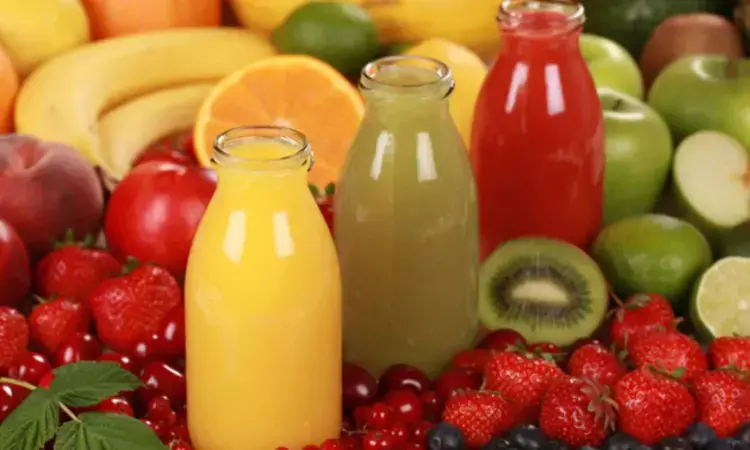- Home
- Medical news & Guidelines
- Anesthesiology
- Cardiology and CTVS
- Critical Care
- Dentistry
- Dermatology
- Diabetes and Endocrinology
- ENT
- Gastroenterology
- Medicine
- Nephrology
- Neurology
- Obstretics-Gynaecology
- Oncology
- Ophthalmology
- Orthopaedics
- Pediatrics-Neonatology
- Psychiatry
- Pulmonology
- Radiology
- Surgery
- Urology
- Laboratory Medicine
- Diet
- Nursing
- Paramedical
- Physiotherapy
- Health news
- Fact Check
- Bone Health Fact Check
- Brain Health Fact Check
- Cancer Related Fact Check
- Child Care Fact Check
- Dental and oral health fact check
- Diabetes and metabolic health fact check
- Diet and Nutrition Fact Check
- Eye and ENT Care Fact Check
- Fitness fact check
- Gut health fact check
- Heart health fact check
- Kidney health fact check
- Medical education fact check
- Men's health fact check
- Respiratory fact check
- Skin and hair care fact check
- Vaccine and Immunization fact check
- Women's health fact check
- AYUSH
- State News
- Andaman and Nicobar Islands
- Andhra Pradesh
- Arunachal Pradesh
- Assam
- Bihar
- Chandigarh
- Chattisgarh
- Dadra and Nagar Haveli
- Daman and Diu
- Delhi
- Goa
- Gujarat
- Haryana
- Himachal Pradesh
- Jammu & Kashmir
- Jharkhand
- Karnataka
- Kerala
- Ladakh
- Lakshadweep
- Madhya Pradesh
- Maharashtra
- Manipur
- Meghalaya
- Mizoram
- Nagaland
- Odisha
- Puducherry
- Punjab
- Rajasthan
- Sikkim
- Tamil Nadu
- Telangana
- Tripura
- Uttar Pradesh
- Uttrakhand
- West Bengal
- Medical Education
- Industry
Are all sugars equal? Study finds fruits score over honey, fruit juices, and sugar-sweetened beverages

UK: In a recent study published in the European Journal of Nutrition, Javier T. Gonzalez, Department for Health, University of Bath, Bath, UK, sought to determine whether all sugars are equal.
The study shed light on the role of the food source in physiological responses to sugars, emphasizing fruit and fruit juice. It found that adding whole fruit to the diet can lower markers of systemic inflammation, blood pressure, and body mass, and with substitution, can improve markers of glycemic control.
"Therefore, from a cardiometabolic health standpoint, whole fruit can consistently and reliably improve markers of cardiometabolic health and are a cornerstone of a healthy dietary pattern," the study stated.
Previous studies have shown that high (free) sugar consumption can increase self-reported energy intake and is associated with unfavorable cardiometabolic health. However, sugar sources may modulate the effects of sugars due to several mechanisms, including the food review. Dr. Gozalez aimed to assess the current state of evidence concerning food source effects on the physiological responses to dietary sugars in humans relevant to cardiometabolic health in a review. Additionally, the authors reviewed the potential mechanisms by which food sources may influence such responses.
Evidence from meta-analyses of controlled intervention trials was used to establish the balance of evidence relating to sugar addition to the diet from sugar-sweetened beverages, honey, fruit juice, and whole fruit on cardiometabolic outcomes. Subsequently, the author discussed studies that directly compared whole fruit with fruit juices or variants of fruit juices.
Key points of the review:
- Sugar sources vary widely in their food matrices, which includes differences in nutritional composition and physical structure.
- Sugar-sweetened beverages could have a “simple” physical structure, being in liquid form and with few additional nutrients (i.e., negligible polyphenols, fiber, and potassium).
- Honey may contain a small quantity of polyphenols, but it is unclear if these are in sufficient quantities to exert meaningful physiological effects.
- Fruit juices typically contain relatively higher concentrations of polyphenols, fiber, and potassium, especially when expressed per g of sugar, and whole fruit has the additional complexity of a solid (or semi-solid) physical structure and a higher fiber content.
- These characteristics may contribute to the physiological effects of consuming these sugar sources, whereby meta-analyses demonstrate the addition of SSBs to the diet can increase fasting glucose and insulin concentrations in addition to body mass.
- Honey appears to decrease fasting glucose concentrations but increase some markers of inflammation, the relevance of which is currently unclear.
- Adding fruit juices to the diet may increase fasting glucose and HbA1c but can lower blood pressure and body mass and, when substituted into the diet, can lower some markers of systemic inflammation.
In conclusion, there is currently relatively little direct comparison of sugar sources on health outcomes or cardiometabolic markers. There is no clear evidence for meaningful differences in inflammation, glycaemic control, or blood pressure, of the currently available data on direct comparisons of whole fruit versus fruit juice. There is, however, consistent evidence that whole apples can lower plasma low-density lipoprotein cholesterol concentrations compared with fruit juice.
Acute appetite responses indicate whole fruit increases satiety to a greater extent than fruit juice, but there has been no detailed study of comparative changes in body mass and composition. Medium-term interventions with daily fruit juice have not led to consistent, significant overall body weight or compositional changes.
"Further research on direct comparisons of sugar sources and complex foods with multiple ingredients and difference structures, would contribute to a better understanding of the causal role of food matrix on the cardiometabolic responses to sugar consumption," the author wrote.
Reference:
Gonzalez, J.T. Are all sugars equal? Role of the food source in physiological responses to sugars with an emphasis on fruit and fruit juice. Eur J Nutr (2024). https://doi.org/10.1007/s00394-024-03365-3
Dr Kamal Kant Kohli-MBBS, DTCD- a chest specialist with more than 30 years of practice and a flair for writing clinical articles, Dr Kamal Kant Kohli joined Medical Dialogues as a Chief Editor of Medical News. Besides writing articles, as an editor, he proofreads and verifies all the medical content published on Medical Dialogues including those coming from journals, studies,medical conferences,guidelines etc. Email: drkohli@medicaldialogues.in. Contact no. 011-43720751


